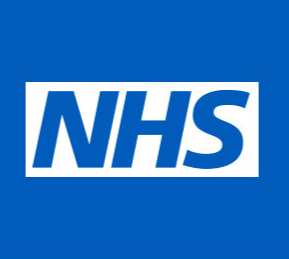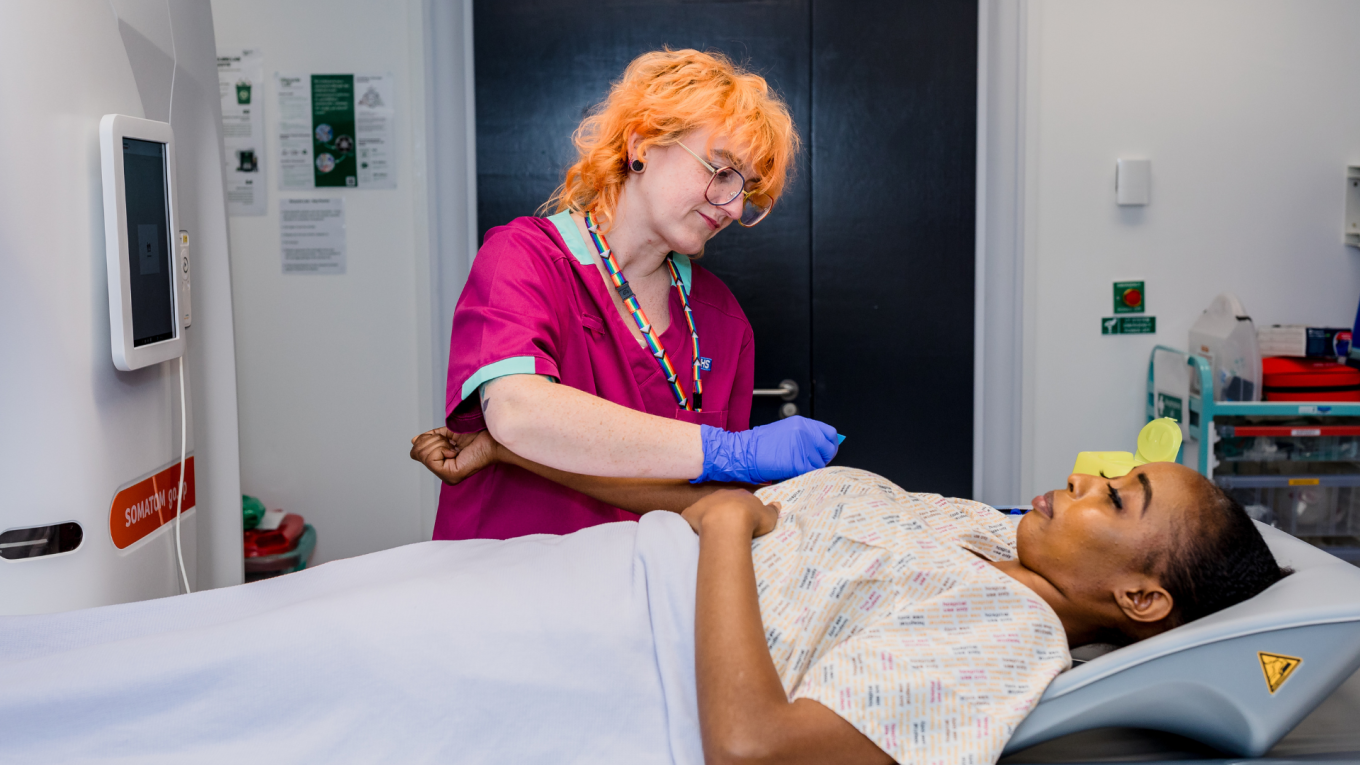
Therapeutic radiographer
Therapeutic radiographers use radiotherapy to treat people diagnosed with cancer. Working closely with other healthcare professionals, they create tailored treatment plans that combine technical skill with compassionate care and emotional support.

On this page
Introduction to the role
Therapeutic radiographers work as part of a specialist team caring for people with cancer. Based in a hospital, you’ll be involved in planning and delivering treatment programmes, supporting patients from their first appointment through to the end of their treatment.
About the role
What does a therapeutic radiographer do?
In this role, you’ll use advanced technology to target and treat tumours. This could involve taking initial X-rays, using CT scanners, or operating linear accelerators. You’ll be a key member of a multidisciplinary team, working alongside colleagues from different departments to design and deliver effective treatment plans.
What are the pay and conditions like?
If you work as a therapeutic radiographer in the NHS, you’ll usually have a 37.5 hour working week, which may include some evenings or weekends.
Most therapeutic radiographers start at band 5 on the Agenda for Change pay scale. You’ll also receive at least 27 days of annual leave plus bank holidays, along with access to the NHS pension scheme and a range of staff discounts.
Where therapeutic radiography can take you
Once you have qualified as a therapeutic radiographer, there are a range of career paths you can follow.
You could:
- specialise in treating specific types of cancer
- focus on working with children
- work with emerging technologies such as proton beam therapy
- move into research, teaching or management
You’ll have regular professional development opportunities to help you progress, and you may choose to join The Society of Radiographers to access training, courses, conferences and seminars.
Life as a therapeutic radiographer
Life as a therapeutic radiographer
Person specification
Is therapeutic radiography right for you?
Therapeutic radiographers work with advanced technology every day, but the role is just as much about people as it is about equipment. You’ll need to be interested in new technologies, pay close attention to safety, and have strong observational skills. Just as importantly, you’ll provide reassurance and emotional support to patients and their families throughout treatment.
Ask yourself:
- Am I confident using complex equipment with precision and care?
Can I put people at ease when they may be anxious or nervous?
Do you have the skills to succeed?
You’ll be planning and delivering treatments that can have a major impact on someone’s life, so accuracy and attention to detail are essential. You’ll also need the ability to build trust quickly and adapt your approach to meet each patient’s needs.
Ask yourself:
- Can I combine technical skill with compassionate care?
Am I able to stay calm and focused in a busy clinical environment?
Find a course with UCAS
Want to explore the next step in traditional degree routes into the NHS? Explore courses related to therapeutic radiography with UCAS today.
Entry requirements and training
The most common route into therapeutic radiography is by completing an approved undergraduate or master’s degree. Full-time courses usually take three to four years to complete, while part-time study can take up to six years. Once you have successfully completed your degree, you must register with the Health and Care Professions Council before you can begin practising.
A degree apprenticeship in therapeutic radiography is also an option. This route allows you to train while working and is offered by some healthcare providers in partnership with universities.
Most universities ask for five GCSEs at grades 4-9 (A-C) or above, including English language, maths and science, along with three A levels or equivalent, usually including a biological science. Equivalent qualifications may include a BTEC, HND or HNC in a relevant subject, a T Level, NVQ, science-based access course, equivalent Scottish or Irish qualifications, or a previous degree or professional qualification in a related field.
Entry requirements can vary between universities, so it’s important to check directly with the provider before applying.
Find out more about routes into the NHS with UCAS.
Work experience
Applying for a course or apprenticeship as a therapeutic radiographer is going to be competitive. If you're seriously considering it, it is a great idea to try and gain some prior work experience to strengthen your application. Visit NHS England to find out more about gaining work experience for careers in the NHS.
Financial help at university
You could receive at least £5,000 a year to help fund your studies while at university in England. Your personal circumstances and the course you choose may mean you could receive more. And the good news? You'll never have to pay it back.
Explore NHS Careers
There are over 350 different NHS careers and everyone makes a difference every day. Whether you’re still in education or thinking about changing careers, you'll get the information you need.